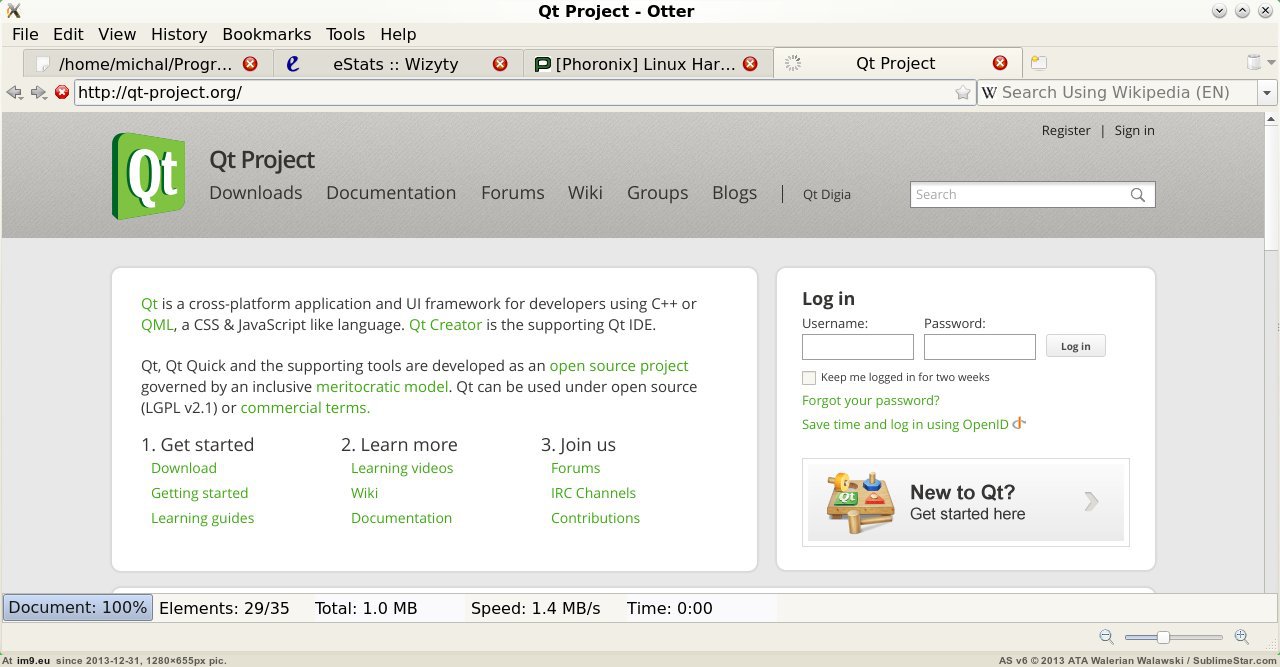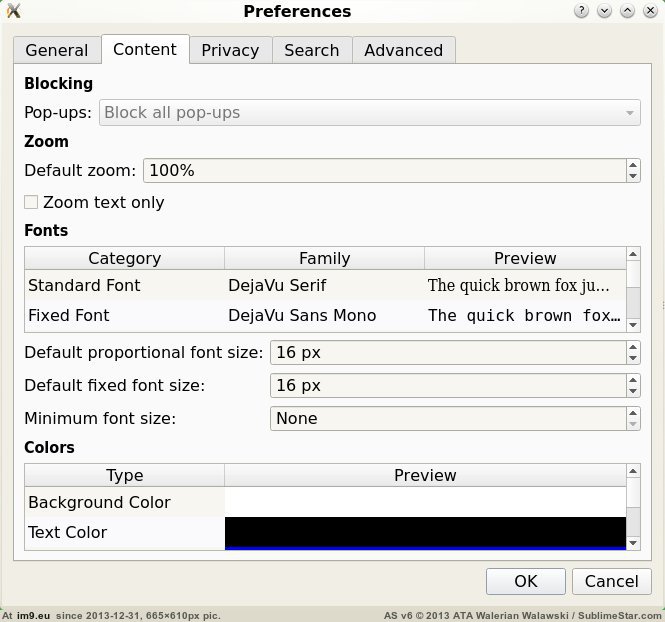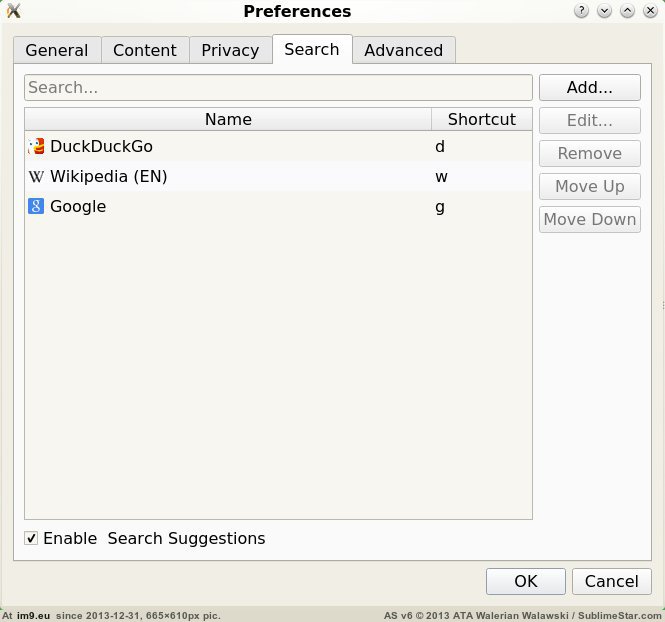Alpha Otter Browser
 While in Russia, under the thunder of fireworks, they greeted the New Year cheerfully and fervently, an alpha version of the browser was born in a secret laboratory of almost neighboring Poland, which could potentially be a substitute for Opera 12.x. It is written using the Qt5 framework and, accordingly, the QtWebKit component, but in the future it will be transferred to QtWebEngine (which, I recall, is based on Blink code) and is likely to be able to switch to Gecko. However, this is all in the future. Now he offers the following features:
While in Russia, under the thunder of fireworks, they greeted the New Year cheerfully and fervently, an alpha version of the browser was born in a secret laboratory of almost neighboring Poland, which could potentially be a substitute for Opera 12.x. It is written using the Qt5 framework and, accordingly, the QtWebKit component, but in the future it will be transferred to QtWebEngine (which, I recall, is based on Blink code) and is likely to be able to switch to Gecko. However, this is all in the future. Now he offers the following features:- Tabs, their attachment and detachment, side tabs (but the text is rotated 90 °, it will work without rotation later), tabs at the bottom of the window;
- download manager;
- history of visits;
- browsing cookies;
- search bar;
- session manager;
- private tabs and windows;
- bookmarks;
- setting up search engines;
- basket of closed tabs;
- page scaling;
- tab thumbnails when you hover over them.
Well, more on the little things. The author emphasizes that this is not 100% repetition of Opera, but the implementation that is as close as possible to it. As he himself positions it: “A web browser that is controlled by the user, and not vice versa . ” The program itself is initially developed as the most modular. The previously mentioned possibility of switching rendering engines is not the only one. Of the planned functions, for example, the mailer and the RSS client will also be modules, and separate, but using a single interface.
Screenshot of the main window:

')
A few more screenshots






View cache:

Download list:

Settings window:




By the way, about the planned opportunities. Here they are, in the order of importance that the developer has determined:
Top priority:
- Start page (analogue SpeedDial);
- proxy settings in the browser itself;
- settings for individual sites;
- password manager.
Medium priority:
- Mail and RSS clients;
- delayed loading of Flash objects;
- content blocking;
- spellchecking;
- panels (information about the page, notes, downloads, bookmarks, etc.);
- system tray icon.
Low priority:
- Tweaking user interface;
- auto-complete forms;
- MDI functions for the interface;
- mouse gestures;
- tab grouping;
- import existing settings;
- the ability to add / replace items in the context menu;
- extensions;
- Opera Link-like solution;
- improved integration with various platforms (integration with Windows taskbar, etc.);
- Blink rendering engine (via QtWebEngine after it is ready. And it will be ready presumably in the spring, with the release of Qt 5.3).
Very low priority:
- Support for themes from Opera 12.x (via QStyle);
- IRC instant messaging module (via libpurple);
- BitTorrent module;
- support for thumbnails for tabs (which are displayed when stretching the tab bar).
As you can see, the Napoleonic plans, but it is already possible to judge from them how closely the author wants to repeat the classic Opera. And the question is now in the programmers who could help in the development. And not only in them, now, for example, there is an active discussion of the program’s logo (the one at the beginning of the article is not yet final), so the help of designers will not hurt either.
References:
Project site: http://otter-browser.org/ . It may not open from everywhere because of the hoster, but always opens through Opera Turbo.
GitHub repository: https://github.com/Emdek/otter
Experimental binaries: http://sourceforge.net/projects/otter-browser/files/otter-browser-alpha1/
Informal builds: https://github.com/Emdek/otter/wiki/Packages
Source: https://habr.com/ru/post/208416/
All Articles